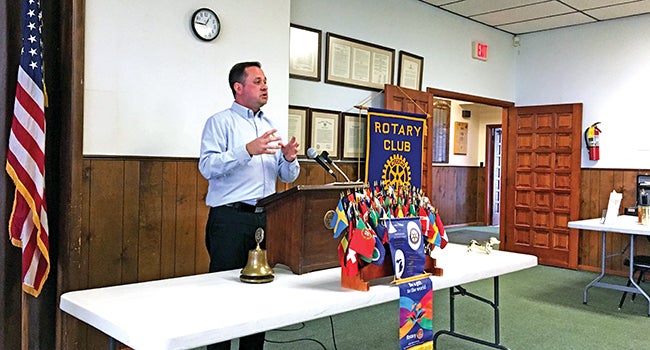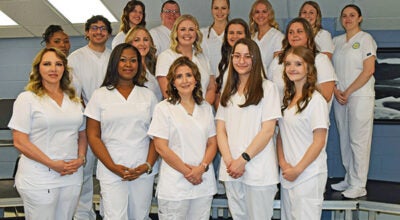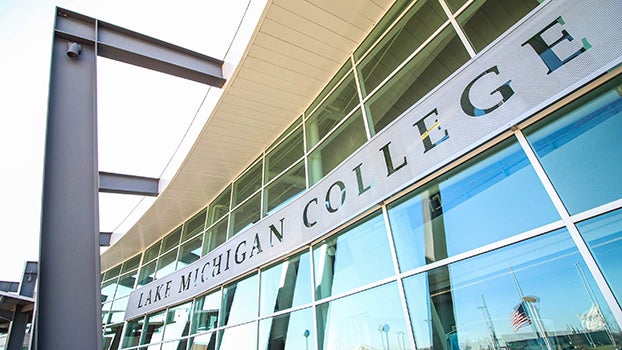Area expert shares tips to maintain clean air in home
Published 1:41 pm Friday, March 31, 2017

- Jason Ganser, with South Bend’s ACM Engineering and Environmental Services, explains proper air quality maintenance to members of the Dowagiac Rotary Club Thursday. (Leader photo/TED YOAKUM)
When it comes to maintaining a safe and clean household, most people focus on the threats they can see.
They make sure to lock their doors and add security alarms to keep out possible intruders. They install smoke detectors and have fire extinguishers handy to combat any fires that may erupt.
However, just as important for homeowners to consider are the threats they cannot see with the naked eye, even though they literally hide within the air they breathe.
The quality of the air inside a home plays a pivotal role in the quality of life of its residents, said Jason Ganser, a consultant with South Bend’s ACM Engineering & Environmental
Services. While the problems resulting from contaminated air are impossible to see, they are not impossible to prevent, Ganser said.
Ganser offered some advice for residents to maintain a clean and healthy atmosphere in their homes during a presentation to the members of the Dowagiac Rotary Club Thursday afternoon, during the organization’s weekly meeting at the Elks Lodge. Rotarian and Servpro of Cass and St. Joseph counties employee Steve Meyer invited Ganser to speak to the rest of club.
Ganser, the vice president of Engineering and Environmental Services at ACM, and the rest of his firm perform environmental risk assessments for businesses and homes throughout the country. Among the tasks the company performs is air analysis, where employees visit a site and collect air samples, which are then tested for mold, bacteria and other possible health threats.
Ganser has been involved with projects as large as the aftermath of dealing with Hurricane Katrina, he said. His firm has also done work in the past for Cass County, analyzing the air inside the county annex and the mothballed vintage courthouse.
While smaller in scale than businesses or governmental buildings, air quality is just as important for homes as it is anywhere else, Ganser said. Be it threats from mold, bacteria such as e-coli or carbon monoxide, a contaminated atmosphere can result in serious damage to homes or potentially deadly health issues for its residents.
“Your house is supposed to be your safe haven,” Ganser said. “When you come home from wherever you have been throughout your day, you are looking for it to be a space where you can relax, where you can grow your family. You expect it to be safe where you feel safe.”
Homes typically become contaminated through one of the three means: problems with the construction of the house, where building faults result in air issues; equipment failure, where issues arise due to malfunctioning furnace or central air units; and third is human failure, where homeowners attempt to handle accidents such as floods on their own, with improper care resulting in problems, Ganser said.
Water damage, in particular, is the number one cause of air quality deterioration. While small puddles that develop due to a one-time event can typically be cleaned up by homeowners without major problems, for situations like sewage backups or burst pipes, outside help is often necessary, Ganser said.
“Use the resources available to you, such as insurance companies or professionals, to handle that situation,” he said.
If they don’t already, homeowners should buy carbon monoxide detectors, as the gas cannot be detected through other means. People should also regularly check and change out the filters in their furnaces and HVAC machines, as improper care could result in damage that emits the deadly substance, Ganser said.
People should also check places where they normally don’t visit, such as attics or crawlspaces, to ensure there is not any mechanical failures or water infiltration in those spaces.
“If you catch some form of defect in your home at an early point, you will save tons and tons of money, as well as a massive headache, when you get it fixed,” Ganser said.






